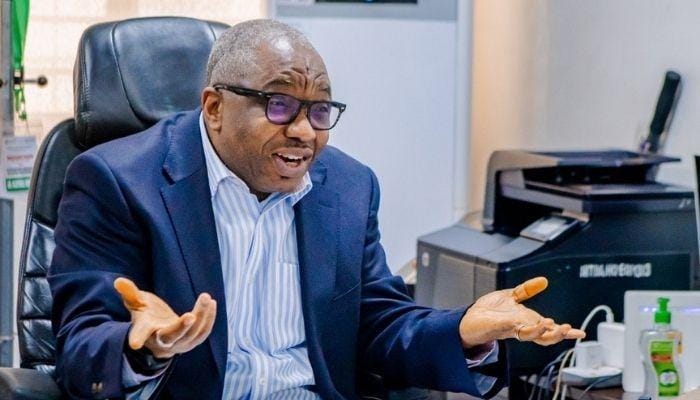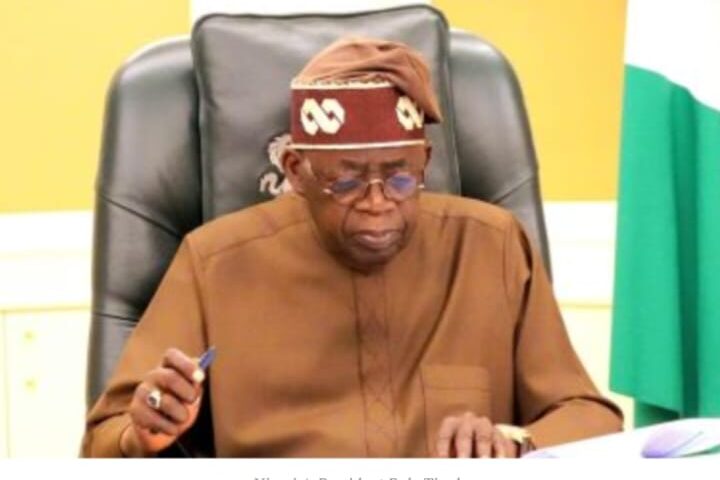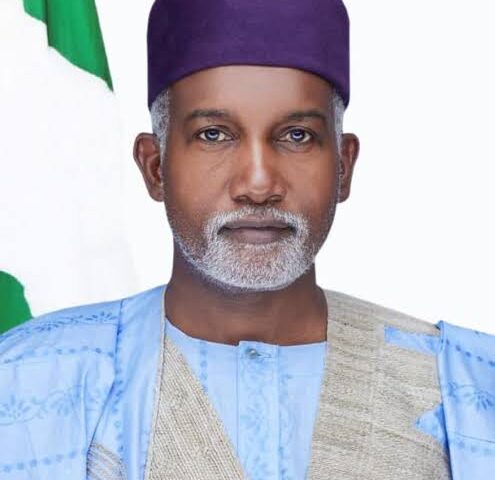Dr. Muda Yusuff, Chief Executive Officer of Centre For The Promotion of Private Enterprise, CPPE, has painted picture of how the telecommunication, information, communication and communication technology sector added value to the nation’s economy since its independence in 1960.
Yussuf, in a statement on the country’s independence anniversary celebration, said
the number of telephone lines in the country today is over 200 million as against what obtained over two decades ago when the country had a mere three hundred thousand lines, with just a handful of mobile telephone.
He also said the economy has witnessed considerable changes in the ICT sector and this has impacted many sectors through the digitalization of their processes and systems.
He said the country has witnessed increased traction in information technology applications in many sectors of the economy, adding that electronic payment systems have brought remarkable transformation to the financial services sector.
He also said: “Transactions on electronic payment platforms and POS, mobile transaction is in excess of one hundred trillion Naira annually. The entertainment sector has grown in leaps and bounds over the last decade. It has also grown in quality and in number. The sector has become a key sector to be reckoned with globally.
“Nigerian music and films have gained an amazing traction worldwide. This growth has come with massive job creation in the sector, especially for the youths.
Unlike what obtained at independence, the economy has witnessed impactful private sector footprints in many sectors, especially in the following: telecommunications and ICT, aviation, transportation, education sector, health sector, print and electronic media and many more”
According to him, the contribution of the Nigerian private sector to the Nigerian economy has grown in leaps and bounds over the years.
He, however, expressed concerns over the country’s macroeconomic management framework which continues to pose serious challenges to investors in the economy.
He said the troubling macroeconomic situation in recent years have manifested in weak and depreciating currency, high inflationary pressure, high and rising debt profile, exchange rate volatility, liquidity crisis in the foreign exchange market, increasing fiscal deficit, growing debt service burden, and the acceleration of money supply growth following the rising Central Bank of Nigeria financing of deficit.
He also expressed concern over high infrastructure deficit, cargo clearing challenges which has continued to worsen, high transactions cost at the ports, weak productivity in the real sector largely as a result of infrastructure conditions, regulatory challenges and policy inconsistency.
According to him, persistent importation of petroleum products had continued to put pressure on foreign reserves and weakened the capacity of the CBN to support the forex market. Petroleum refineries have remained non-performing over the years.
He said the fiscal position of the federal government and the states are very weak, characterized by high fiscal deficit , high and increasing debt profile and the associated debt service burden is a cause for concern.
He also said the state of insecurity continues to take its toll on the economy, especially on agricultural output and fueling food inflation and impacting the confidence of investors.
He added that the spate oil theft and the associate leakages of government revenue is very troubling.
On way out of the quagmire, Yusuff emphasized the need for urgent steps to be taken to ensure a better macroeconomic management framework to stabilise the exchange rate, eradicate the challenge of illiquidity in the foreign exchange market and to stem the current depreciation of the naira.
He added: ”It is imperative to have urgent reforms in the foreign exchange market with greater focus on supply side strategy. There is need to review the current disproportionate emphasis on demand management of the foreign exchange market. Most sectors are experiencing serious disruptions and dislocations because of the current foreign exchange policy regime”
Government, he said, should strengthen strategies to attract private sector capital to compliment government financing of infrastructure as well as reduce the level of debt financing especially the reliance on commercial debt to fund government operations.
He maintained that steps should be taken to attract foreign exchange through a strategy of ensuring new investment opportunities to stimulate foreign capital inflows into the economy.
Nigeria should be seeking more equity capital than debt capital, he advised. Nigeria should review it’s trade policy to support investment growth and investment sustainability and tax policy must support investment not become a disincentive to investment, he also said.
He advised that there should be greater emphasis on quality intelligence in the war against terrorism.
He said the oil and gas sector reform which is now being anchored on the Petroleum Industry Act [PIA] should be accelerated in order to ensure the unlocking of the enormous value in the oil and gas sector, even as he advocated the need for immediate cessation of the impunity that has characterized the stealing of crude oil and the attacks on oil installations.
He added: “Institutional reforms are necessary to ensure that the regulatory institutions have better disposition to support the growth of investment and focus less on the generation of revenue. The international trade process needs to be reformed to prioritize trade facilitation. The current obsession for revenue generation is hurting the international trade processes and impacting adversely on domestic and foreign investment.
“Therefore, the orientation of the Nigeria Custom Service, Nigerian Ports Authority, the shipping companies and the terminal operators and the security agencies at the ports need to change in favour of an investment friendly international trade processes”

















